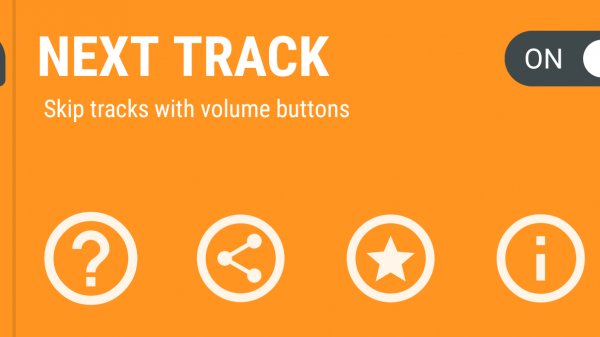You want to take your mobile testing approach to the next level but need to know how. There are many ways to do this, but you only have a limited time and money.
Even if you think you are an expert at checking mobile apps, there is always something you can do better. You need to know which tactics and, most importantly, which tools to use.
The mobile field is expanding quickly. There are now all kinds of mobile apps, from video apps to apps for mobile banking. We all know that testing mobile apps is a challenging task.
For mobile apps, there are a lot of platforms and operating systems, different types of testing settings, and a wide range of network connections and carriers.
The most used mobile running systems are Android and iOS. For these systems, millions of apps need to be tested.
What is testing for mobile apps?
Mobile app testing checks for functionality, consistency, and usability on smartphones, tablet PCs, and phones.
There are the following types of mobile testing:
Functional Testing: The most fundamental kind of testing is called functional testing. It is used to check that the features of a program are up to snuff.
Performance testing: Client, server, and network applications can be tested for performance.
Memory testing: Mobile devices have less memory than computers, so this testing is done to see how well an application uses memory.
Interruption Testing: This is used to see if the app is interrupted by incoming calls or SMS, low memory warnings, low power warnings, etc.
Installation Testing: Installation Testing is used to see how easy and smooth the installation process is. This includes checking for updates and removing them.
Usability testing: Usability testing was always used to check how well the app worked, how satisfied people were with it, and how well it worked.
Types of Tools for Mobile Automation Testing:
- The best tools to test mobile apps
- Tools and services for testing mobile apps in the cloud
- Tools for developers to use to get their mobile apps out there and report crashes
- Performance Testing Tools for Mobile
- Mobile emulators let websites be tested on mobile phones and tablets online.
- Mobile A/B Testing Tool for Mobile Optimisation
- Mobile tool for logging bugs and managing tests
- Services and companies that test mobile apps
Best Mobile Testing Tools
Mobile app testing can be done by hand or with software. Several mobile test automation tools can be used for this. Not all of them are listed below, but some of the most famous and widely used ones are.
#1) TestComplete

TestComplete enables developers of both native and hybrid mobile apps to create and execute reliable UI tests regularly. Both Android and iOS devices can use TestComplete.
Automate your user interface tests on real mobile devices, virtual machines, or simulations. You don’t have to jailbreak your phone or computer if you use TestComplete.
Automated test scripts can be made using script-free record and replay steps or programming languages like Python, VBScript, JScript, or JavaScript.
#2) HeadSpin

Mobile applications are tested manually and automatically on devices to ensure optimal performance.
Users can test and improve their mobile, web, audio, and video apps on thousands of devices with the help of the HeadSpin Platform. Testing your app across various network environments is essential to ensure a seamless user experience.
Advantages:
- Get insights from AI and ML to solve problems and get your goods much faster and with less time to market.
- Test on real devices to be sure you’re right.
- With a single-tenant (dedicated device) model applied on and off-prem, testing is more secure, and performance is better.
- With HeadSpin’s Create Your Own Lab (CYOL), businesses can use their gadgets to join the
- HeadSpin Platform and run tests that are done on their own. It also allows businesses to do edge testing when they are in a particular place and want to test their apps there.
- Providing aggregation and regression insights at the pace and scale required to succeed in today’s digital economy requires an intelligent strategy.
- HeadSpin’s Regression Intelligence is a powerful way to compare app builds, OS releases, feature additions, places, and more to see if they are worsening.
#3) Kobiton (iOS And Android Device Cloud)

To be competitive in today’s digital market, you need a well-thought-out strategy for delivering aggregation and regression insights quickly and at scale. Built on the open-source Appium platform, Adding new hardware and OS changes to the device lab all the time
Test on different devices without making changes to the script. Activity logs, instructions, screenshots, and metadata automatically make finding problems and prepaid testing minutes that never run out easier.
#4) Avo Assure

Avo Assure is a no-code, heterogeneous test automation system that lets you test web and mobile apps for Android and iOS without writing any code.
Some of the most essential things about Avo Assure are:
- You can test apps without writing a single line of code with the 100% no-code feature.
- The heterogeneous feature lets you test apps on the web, Windows, mobile platforms (Android and IOS), non-UI (web services, batch jobs), ERPs, Mainframe systems, and associated emulators, all with one solution. This makes end-to-end test automation possible.
- The UI is easy to understand and use, which makes testing a breeze.
- With Smart Scheduling and Execution, you can run multiple scenarios in a single VM, one after the other, or simultaneously.
#5) TestGrid

Users can do end-to-end testing of mobile apps with TestGrid, whether app testing, load testing, or API testing. With TestGrid, users can manually and automatically test mobile apps on actual devices stored in the cloud, on-premise, or in a hybrid way. They are beginning at $29/MO.
Features:
- End-to-end mobile testing without writing any code.
- You can try native, web, and PWA apps on Android and iOS phones, tablets, and browsers.
- You can test the mobile API on a single device, how well it works, and more.
- Help languages like Java, C#, Ruby, Python, Perl, and PHP get used.
- Provides a variety of tools, such as NodeJS and React Native.
- Supports testing of IoT devices, APIs, performance, automation, security, and more.
- Travis, Jenkins, GitLab, CircleCI, BitBar, JIRA, TestRail, MS TFS, and more can be used without problems.
- Offers record-and-playback, cross-browser testing, no-code automation, and testing on real devices.
- Provides Cloud Infrastructure, On-Prem Support, Robotic Test Automation, IoT Automation, and Test Cases.
#6) Bug Hunter

Bug Hunter is a mobile testing tool mainly used for checking the user interface of Android apps. Manual testers can use it, but Android developers and UI/UX designers can also check the app or some of its features before it goes to the QA stage.
Bug Hunter covers all the essential parts of UI testing and makes it easy to use the tools. You don’t have to leave the screen you’re on to switch between tools or change the settings.
What Bug Hunter has to offer:
- Device Details: View and share information about the hardware or add information about the device to photos.
- Rulers and Guides: Use these to check how the UI elements are lined up.
- Grid: Figure out how oversized UI items are and how much space between them.
- Mockups: Use an actual device to test a new design or ensure the app’s layout fits the requirements.
- Color Picker: Find the color code of any pixel on the screen and look for half pixels in UI elements.
- Screenshot & Longshot: Picture and Longshot let you take a picture with just one tap and take high-quality long shots without editing them by hand.
- Record Video: You can record, stop, and playback the video anytime.
#7) Eggplant (Android and iOS)

Eggplant is a commercial GUI automation testing tool TestPlant that uses to test Android and iOS apps. It is based on aubergine.
It can be used for UI automation and functional testing, Image-Based Testing, Mobile Testing, Network Testing, Web Testing, and Cross-Browser Testing.
One script for all systems and devices. This tool has some extra features, like complete device code, and testing an app doesn’t require making any changes to its code.
Needs for the system:
- Processor: faster than 1.5 GHz.
- RAM: at least 1 GB.
- Operating System: Linux, OS X, and XP are operating systems. Windows 7/8/10
#8) testRigor – Write Complex Automation Tests in Plain English

With testRigor, manual QA will be able to build very stable and reliable automated mobile tests for native and hybrid mobile apps (for both iOS and Android) and mobile web and API. testRigor is on the list of the best tools for testing mobile apps for a few important reasons:
They’re the only business to solve the “Test Maintenance Problem.” Their “No Code” solution doesn’t require any understanding of coding, xPath, CSS, or other technical details. Tests can be automated by hand up to 15 times faster than with Appium.
On average, it takes 99.5% less time to take care of it. Most customers can automate up to 90% of their work in less than a year. Emulators and models, as well as real devices, are supported. It has a way to connect to BrowserStack. Audio checking and SMS/text validation are two of its more advanced features.
#9) Appium (Android and iOS)

Appium is a free and open-source program for automating the testing of iOS and Android native, mobile, web, and mixed apps. It’s compatible with the native app frameworks for Android and iOS. Appium works with Safari on iOS and all of Android’s built-in browsers.
You don’t have to change any app code to try it because it can run on an Android or iOS device or emulator. This tool is used to test the functionality of Android and iOS apps in an automated way.
#10) UI Automator (Android)

UI Automator is an open-source system that lets automated functional test cases be used to test the user interface. Able to run on one or more devices against an app. The UI Automator API is stored in the UI Automator.jar file in the /platforms/ directory. This API includes class interfaces and errors. JavaScript is used to write the scripts used by the UI Automator system.
System Requirements:
- The most up-to-date version of Android Studio.
- A device that runs Android 4.3 or higher or a simulator that does.
- Know the basics about JUnit.
Conclusion
Mobile app testing is a fun job, but sometimes it can get complex because new features are added to meet the needs of new technology.
Using these Mobile Testing Tools to automate the testing of mobile apps makes the process easier, faster, and more flexible while keeping the right balance of secure.






















































































